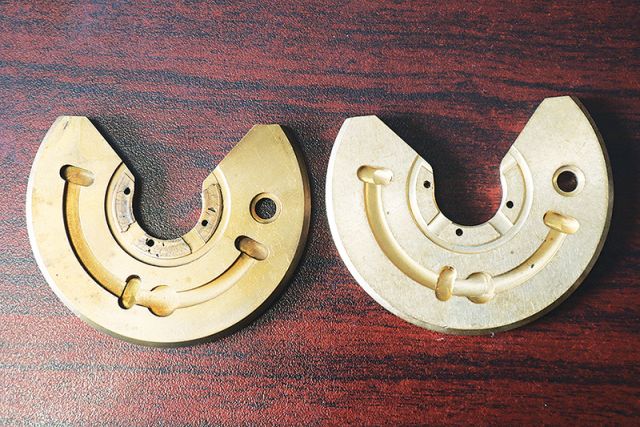High Performance Diesel Engines

Why can transmission and differential oils stay clean for 250,000 miles or longer and not the engine oil? What makes engine oil dirty is the combustion of fuel with oxygen. There are two items that wear out the engine, not counting driver abuse. The first is Si, Silicone, which is ingested dirt that gets past the air filters and into the combustion chamber. This fine abrasive dust can wear away the cross hatch of the liners in as short as 30 days. The cross hatch holds the oil to the cylinder wall and the pistons rings actually ride on the cross hatch. Once the cross hatch is gone, oil consumption accelerates. This is called Liner Bore Polishing. Once the engine has liner bore polishing it must be rebuilt. We at Pittsburgh Power utilize the Fleet Air Filters which have 3 layers of foam of different densities. They need to be washed in a tub or bucket with Dawn dish detergent, allowed to dry, and reoiled. The foam air filters have another benefit: less restriction. This allows the turbocharger to compress more air into the combustion chamber. Another advantage of lower air restriction is less wear on the thrust washer of the turbocharger, thus extending the life of the turbo. When the thrust washer wears out, the end play of the turbo becomes greater than .012 and the compressor wheel (fresh air wheel) will come in contact with the compressor housing. The result of this is having to replace the turbocharger; we all want to avoid that! The Fleet Air Filters have many advantages over paper filters, and we urge you to contact our service department to discuss how they can specifically help your truck.
So, what makes the engine oil black? The burning of diesel fuel along with the fine dust in the intake air creates soot and carbon. Carbon is the by-product from burning fuel. The more efficient the burn, the less carbon and soot in the combustion chamber. Reducing air flow restriction can help as well. A major way to decrease the restriction in the exhaust system is by utilizing our ported and ceramic coated exhaust manifolds or our low restriction mufflers. These advantages make it easier to vacate the combustion chamber of the soot and exhaust. 2008 was the introduction of the DPF, Diesel Particulate Filter, which drastically increases the exhaust back pressure and stores the soot and carbon in the filter until the emission systems burn it out. The Max Mileage Fuel Borne Catalyst main purpose is to increase the efficiency of the burn, and it does this by making the fuel burn in 10 degrees of crankshaft rotation. Untreated diesel fuel takes 15 degrees of crankshaft rotation to ignite. The Catalyst burns the fuel 33% faster, burning 70% more of the carbon and soot in the combustion thus greatly reducing the amount of soot and carbon the DPF has to absorb. The pistons stay cleaner, the exhaust valves stay clean, the EGR valve stays clean and so does the EGR cooler. The sensors that monitor the amount of soot and carbon in the exhaust system stay clean. The Catalyst costs around 1 cent per mile to use, however the savings in downtime, engine efficiency, and greatly reduced emission problems and regenerations create a savings of up to 6 cents per mile. The DPF will need to be cleaned of ash build up every 200,000-500,000 miles, depending on the operating environment.
Max Mileage can also be used in gasoline engines. Put 1 cc of Max Mileage per gallon in the fuel tank and notice how much crisper the engine performs. Harley Davidsons, lawn mowers, leaf blowers, chain saws, muscle cars from the 60’s and even new cars will benefit from the Catalyst. Max Mileage was created by Dr. Jane Gates, she has worked in the chemical and diesel fuel business for the past 36 years. She was raised on a chicken farm in North Carolina along with her parents and 4 sisters and 60,000 chickens. Needless to say, she has a great work ethic, just like all of you owner operators who were raised on farms, ranches, logging families, and trucking families. People raised on farms and ranches are the backbone of our society and deserve an engine that will perform as tirelessly as they do!
Written by: Bruce Mallinson, Pittsburgh Power Inc., 3600 S. Noah Drive, Saxonburg, PA, 16056 Phone: (724) 360-4080 Email: [email protected]
